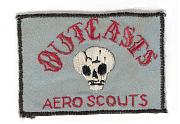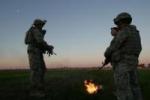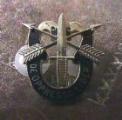Ken, no beef with you on this, you are consistent on this and other points in your postings.
Effective Interagency efforts can preclude wars and can help to end wars on more favorable terms. If a frog had wings...as of today our Interagency efforts are still not where they need to be, nor have they ever been in our past. This was why I posted the CA history; despite our best efforts wars will always occur and in every US war to date the Army screams 'Nation building is not my job' and then ends up having to do the bulk of it by default...I say again, the US Army has consistently repeated this same behavior since 1776.
Since repeating the same behavior and expecting different results is nonsensical, we need to permanently build in effective (staffing levels and range of skill sets) nation building capability into the Army. Call them CA (defined here as part of the SOF team AC & RC), call them Advisers, call them what you will, we need to admit we have a problem in this area of full spectrum operations and get 'Army Strong' in this area. Hindsight being 20/20, early Interagency efforts in Iraq and Afghanistan might have been more successful in preventing/deflecting/reducing our troubles with additional SOF/Adviser assistance. Effective Interagency and SOF/Adviser efforts will almost certainly ease our passage from Iraq and Afghanistan.
Truly wise words here and you have argued elsewhere that if we build effective nation building capability (staffing levels and range of skill sets) into the US Military it will be used, which may lead to additional problems down the road. It's a good and wise analysis my friend, however the requirement still remains, and our history since 1776 reflects that we do not avoid these types of commitments. Accordingly, it is way, way past time for the Army to stand up and say 'Hi, my name is the US Army and I have a serious problem with nation building...'









 (I'm just sayin'...)
(I'm just sayin'...)






 .
.



Bookmarks